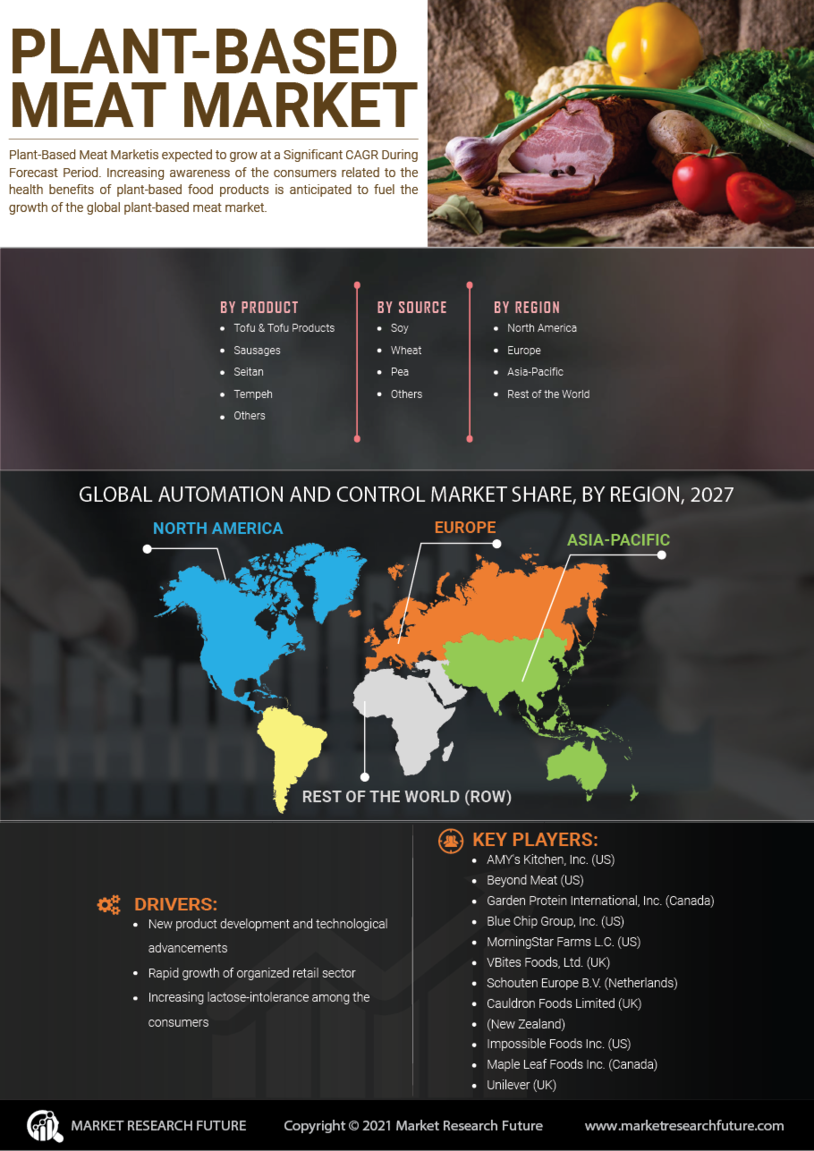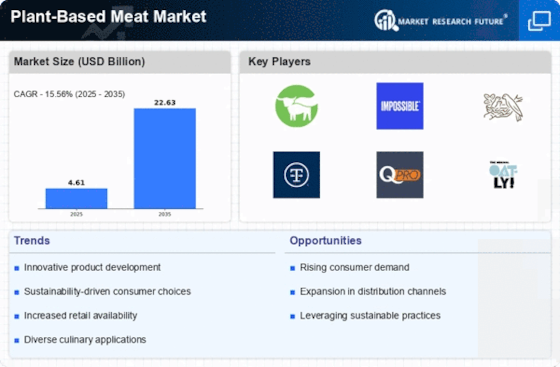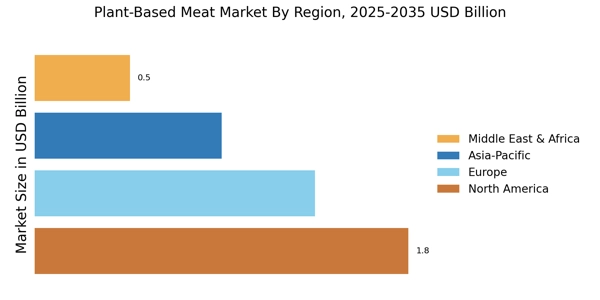Environmental Sustainability
Concerns regarding environmental sustainability are increasingly influencing consumer choices, thereby impacting the Plant-Based Meat Market. The livestock sector is known to contribute significantly to greenhouse gas emissions, deforestation, and water usage. As awareness of these environmental issues grows, consumers are more inclined to seek sustainable food options. Market data suggests that the plant-based meat sector could potentially reduce carbon footprints by up to 90% compared to traditional meat production. This environmental consciousness is prompting both consumers and businesses to prioritize plant-based alternatives, leading to a surge in demand for products that are perceived as more sustainable. Consequently, the Plant-Based Meat Market is likely to benefit from this shift towards eco-friendly consumption patterns.
Changing Consumer Preferences
Changing consumer preferences are significantly impacting the Plant-Based Meat Market. A notable trend is the increasing acceptance of plant-based diets among various demographics, including flexitarians and omnivores. This shift is driven by a desire for variety in diets and the exploration of new culinary experiences. Market data reveals that nearly 30% of consumers are actively seeking plant-based alternatives, indicating a substantial market opportunity. As more individuals incorporate plant-based options into their meals, the demand for diverse and innovative products is likely to rise. This evolving consumer landscape encourages manufacturers to diversify their offerings, thereby enhancing the overall growth potential of the Plant-Based Meat Market.
Health Awareness and Dietary Shifts
The increasing awareness of health issues related to meat consumption appears to be a driving force in the Plant-Based Meat Market. Consumers are becoming more conscious of the health implications of red and processed meats, which have been linked to various diseases. This shift in dietary preferences is reflected in market data, indicating that the plant-based meat segment is projected to grow at a compound annual growth rate of approximately 15% over the next five years. As individuals seek healthier alternatives, the demand for plant-based options is likely to rise, encouraging manufacturers to innovate and expand their product lines. This trend not only caters to health-conscious consumers but also aligns with broader dietary shifts towards plant-based diets, further solidifying the position of the Plant-Based Meat Market.
Regulatory Support and Policy Initiatives
Regulatory support and policy initiatives are emerging as key drivers for the Plant-Based Meat Market. Governments are increasingly recognizing the need to promote sustainable food systems and are implementing policies that support plant-based alternatives. This includes subsidies for plant-based food production and initiatives aimed at reducing meat consumption for health and environmental reasons. Market data suggests that regions with supportive policies are witnessing faster growth in the plant-based sector. As regulatory frameworks evolve to favor plant-based options, the Plant-Based Meat Market is likely to experience accelerated growth, driven by both consumer demand and governmental support.
Technological Advancements in Food Production
Technological advancements in food production are playing a pivotal role in shaping the Plant-Based Meat Market. Innovations in food technology, such as improved processing techniques and ingredient sourcing, are enhancing the taste, texture, and nutritional profile of plant-based meats. For instance, the development of new protein sources and flavoring agents is making plant-based products more appealing to a broader audience. Market data indicates that investments in food technology are expected to increase, with projections suggesting a rise in the plant-based meat market's value to over 20 billion dollars by 2027. These advancements not only improve product quality but also facilitate the scalability of production, making it easier for companies to meet the growing consumer demand for plant-based options.

















